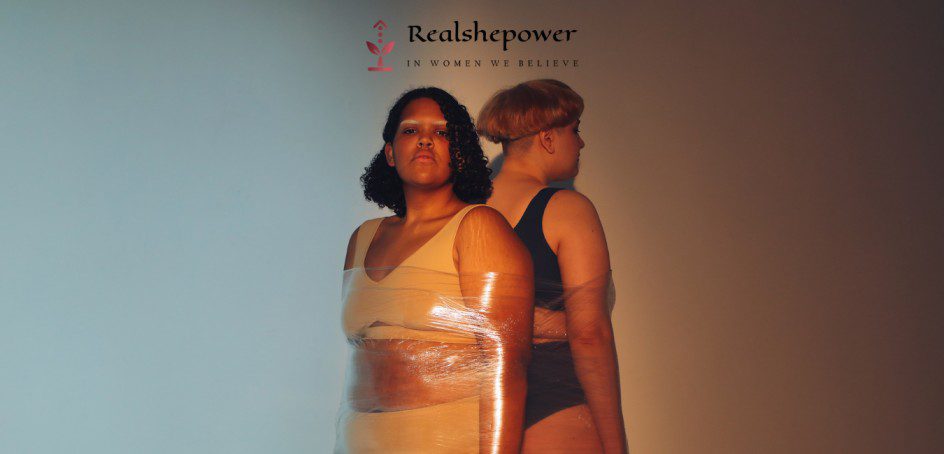The Full Guide to Body-Shaming, How It’s Hurting Our Mental Health & Why We Need to Stop


Body shaming is a habit that has been around for centuries, but now with the help of social media platforms, it has been able to reach its most extreme forms.
In this article, we’re going to look at what body shaming is and how it’s hurting our mental health. We will also talk about why we need to stop the habit and how we can move forward in a healthier way.
What is Body Shaming?
Body shaming is defined as using stigmatizing language to disparage someone else’s physical appearance. People will often use phrases like “thinspiration” when they refer to the body types that they find desirable. A person may begin to identify with their weight and look down on others who are larger.
Body shaming can happen to anyone, but it seems to be more common among women than men. Studies show that girls are more likely to be teased about their weight than boys and that women are also more likely than men to feel pressure to conform to certain beauty standards.
Being body shamed can lead people to become depressed, anxious, or traumatized. Some people may even resort to suicide because they don’t want their pain anymore.
Why do people shame other people’s bodies?
You may wonder, “why would someone do this?” Many people are motivated by many different reasons. Often, these reasons include:
- Expressing anger
- Blaming another person for their own misery
- Social comparison
- A need for attention
- Guilt over not being fit enough
- Fear of loss of control
- Self-destructive behavior
- Physical pain
- Emotional pain
- Surprise at someone’s success
- Trying to get back at someone
- Internalized oppression
Some people use body shaming as a form of expression or catharsis. Some people tend to bully others because they fear themselves. Other people use body shaming to attempt to control their environment.
The use of body shaming is culturally ingrained, and many people today are becoming more conscious about it. However, it still occurs.
How does this downward spiral affect the person who is being shamed?
What are the side effects?
A combination of major negative mental and physical effects follows from the negative effects of body shaming.
Mental side effects
While you may not realize it, you may have experienced some of the effects of body shaming. For instance, the following are some possible symptoms of a body-shaming experience:
- Fatigue
- Low self-esteem
- Anxiety
- Emotional instability
- Feeling inferior
- Feeling anxious or depressed
- Feeling disgusted
- Feeling unsafe
- Confusion
This list only scratches the surface of some of the symptoms that body shaming can cause.
As you can see, negative body image can be a very dangerous thing. You don’t have to go through a negative body image to see this effect.
How can one stop the cycle of the downward spiral of body shaming?
Body shaming is a habit that people carry out over a long period of time. Body shaming can even happen without intention. Body shaming can involve criticizing, humiliating, and ridiculing a person’s body.
Body shaming begins with negative and damaging comments made by a stranger to a person they know only casually. The negative comments become reinforced, and the person becomes more and more insecure.
Most of the people that are targeted for body shaming never confront the person who is making the negative comments. When someone makes a critical comment to a loved one, the person will usually say something in return. There will usually be a back-and-forth conversation, but with a stranger, the comments stay with the person for life. It leads to a downward spiral of low self-esteem and self-doubt.
How can we stop body shaming?
The first thing one can do in order to stop body-shaming is to unlearn all of their bad habits and learn new ones. One should never pick on people for their appearance, but instead, make a point about their personality or actions. If you are not sure if your comment will be taken in the right way then it would be best not to say anything at all.
Secondly, stop being a part of conversations where one person is body shaming another. You can either stop them or leave the conversation as a mark of protest. When people will start taking a step back from participating in this behaviour, it will start a ripple effect where others will follow suit and eventually it becomes contagious not to body shame.
Third, educate people about the actual meaning of words they callously use and their correlation to physical appearance. Changing the meaning of words to some completely unrelated concept will stop the cycle. The “Ugly American” epithet is an obvious example of a word that has its origins as a compliment but has been used as a label for a person who is not physically attractive. It is not the fact that the person is not physically attractive that creates the negative connotation, but the fact that they use this to self-importantly place themselves above others and instead focus on how they are perceived to be by others, and how they perceive themselves.
Fourth, understand those who shame others need help. They are weak and lacking within, and therefore, they laugh, ridicule and mock others. Let the shamers know, they are weak.
Fifth, smile for their opinions do not define you. It is rather a projection of their minds.
Written by Katherine Joseph
